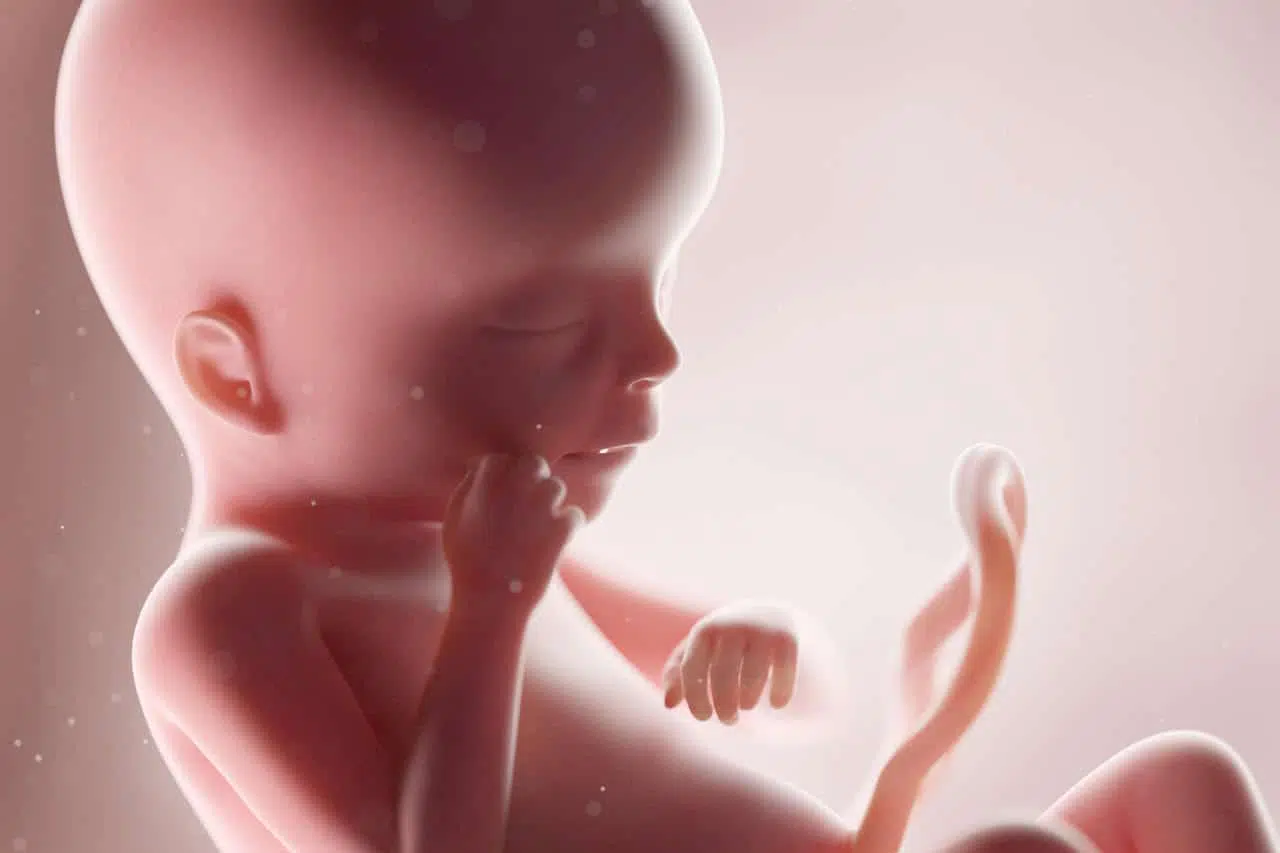Living God’s Unselfish Love

Valentine’s Day has come and gone, but since many of us are still enjoying the candy, the beautiful flowers, and the other fun gifts bestowed upon us by our significant others, it seems only fitting to examine what love truly is.
The Ancient Greeks had several words for the different kinds of love we experience in life. For example, storge refers to the love of kinship or family. Philia is the word they used for friendship. Eros refers to romantic desire. And agape is a divine or self-emptying love.
Most of us have experienced all or some of these types of love. The greatest of these is agape—a giving and selfless love. We see this agape love in all that Christ did for us. Indeed, He loves us so much that He gave His life for us. He emptied Himself of His very breath, His very life, so that we may have life with Him for all eternity.
Christ commands us to mirror this love to other people—not just some people, but all people, especially those who are vulnerable and whom society says are unwanted. This includes the elderly, the disabled, and preborn babies, for no one is ever unwanted in Christ’s eyes.
We freely acknowledge that there are many types of love, so why is it so difficult to demonstrate a love—any kind of love—for our fellow human beings, especially our brothers and sisters in Christ who are not yet born? I believe it’s because, in many situations, the “love” for self or self-preservation presupposes that agape love or that storge love that a woman should have for her child. A love for self is not really love at all. In fact, it goes against the very definition of love.
When a woman becomes pregnant, she is indeed pregnant with a human being. Science has proven this. Yet people don’t seem to care. Women want the “freedom” to do what they want with their bodies, but they don’t realize that this freedom comes at a very high price. It comes at the cost of the life of a human being—a unique human being who can never be replaced.

3D rendered medically accurate illustration of a human fetus – week 19
Where Is the Love?
We see disdain for babies throughout our country. We see it in abortion clinics, we hear it out of the mouths of politicians, and we see it on social media and television ads that tout the “freedom” you can have by using hormonal birth control or emergency contraception such as Plan B. The Culture of Death is choking our society.
Indeed, our laws reflect this disdain and prove that there is no love for preborn babies.
New York’s recent Reproductive Health Act says that “non-doctors are now allowed to conduct abortions and the procedure could be done until the mother’s due date if the woman’s health is endangered or if the fetus is not viable. The previous law only allowed abortions after 24 weeks of pregnancy if a woman’s life was at risk.” To celebrate this slaughter of babies up until birth, “Cuomo directed the 408-foot spire on the One World Trade Center, the Governor Mario M. Cuomo Bridge, the Kosciuszko Bridge, and the Alfred E. Smith Building in Albany to be lit pink to ‘celebrate this achievement and shine a bright light forward for the rest of the nation to follow.’”
No, there is no love in New York. When politicians cheer for the death of preborn babies, we see the antithesis of love. We see hatred.
We see this same disdain in Virginia, where Delegate Kathy Tran of Fairfax “sponsored a bill that would allow abortion while a woman is in labor, and [Governor] Northam, a licensed pediatrician, floated post-term infanticide as an option to parents.” By the grace of God, the House subcommittee defeated Tran’s bill, but we must remember that it had immense support. In fact, Governor Ralph Northam, discussing the possibility of a baby born alive after an intended abortion, said:
If a mother is in labor, I can tell you exactly what would happen. The infant would be delivered. The infant would be kept comfortable. The infant would be resuscitated if that’s what the mother and the family desired. And then a discussion would ensue between the physicians and the mother.
Imagine just allowing a baby to die. Again, I ask: Where is the love?
Yes, we do have some legislation, but it doesn’t protect all babies in all circumstances. For instance, the Born-Alive Infants Protection Act of 2002 says:
- In determining the meaning of any Act of Congress, or of any ruling, regulation, or interpretation of the various administrative bureaus and agencies of the United States, the words “person,” “human being,” “child,” and “individual” shall include every infant member of the species homo sapiens who is born alive at any stage of development.
- As used in this section, the term “born alive,” with respect to a member of the species homo sapiens, means the complete expulsion or extraction from his or her mother of that member, at any stage of development, who after such expulsion or extraction breathes or has a beating heart, pulsation of the umbilical cord, or definite movement of voluntary muscles, regardless of whether the umbilical cord has been cut, and regardless of whether the expulsion or extraction occurs as a result of natural or induced labor, cesarean section, or induced abortion.
We also have attempts at legislation. The Born-Alive Abortion Survivors Protection Act was introduced “to prohibit a health care practitioner from failing to exercise the proper degree of care in the case of a child who survives an abortion or attempted abortion.” It was “first introduced in 2017 by Sen. Ben Sasse, R-Neb., failed in the U.S. Senate . . . [and was] defeated with 53 votes in favor to 44 against. It needed 60 votes to pass. Only three Democrats voted for the bill: Sens. Joe Manchin, D-W.V., Bob Casey, D-Pa., and Doug Jones, D-Ala.” (emphasis added)
Where is the love?
Some people say that, under these new laws allowing abortion until birth, infanticide will never happen, but it has already happened. Furthermore, those of us who know and understand the real meaning of love know that frequency doesn’t really matter. Even one suffering baby is too many.
Build a Culture of Life
We should all be concerned about infanticide laws and about any laws that don’t protect the most vulnerable among us. We should be concerned because they allow and help the Culture of Death to seep into our society. Some of us may think these laws don’t affect us because we don’t live in that particular state, we’re older, we don’t have kids, we’re pro-life anyway, we’d never get an abortion, etc. But they do affect each and every one of us—either directly or indirectly—because we are part of this country. And it is our responsibility to mirror the love of Christ and shine it on each of His children.
We cannot just sit back and do nothing. Apathy takes many forms, and we’re all guilty of it. We’re tired when we come home from work. We’re tired after spending all day with our kids. We live, but we often fail to really act as Christ wants us to. Building a Culture of Life means saying no to apathy and doing something every day, even something small, to protect human beings from the hatred that is rampant in our society and to let people know that everyone matters and everyone is valuable. It is only then that people will know love.
What does this look like in day-to-day life? It begins with education in the home, with programs like the Culture of Life Studies Program that teach children and teens the inherent dignity of each human being. It then flows out into your workplace and community, where you can show your love of your fellow human being by serving the homeless, donating to pregnancy help centers, making an elderly neighbor feel less lonely, teaching in a CCE program, volunteering with low-income children, or praying in front of Planned Parenthood. The possibilities are endless.
Brian Clowes, PhD, said it eloquently when he stated: “Preborn children can be the pro-life movement’s most eloquent messengers―but only if we are their voice.”
Let your love of babies inspire you to be the voice of the preborn and to build a Culture of Life that says no to hatred and selfishness. Though we may still be thinking about Valentine’s Day, we should challenge ourselves to strive for more than the eros type of love. Remember Christ’s agape love, and let that love flow through you onto those who need it most—today and every day.



